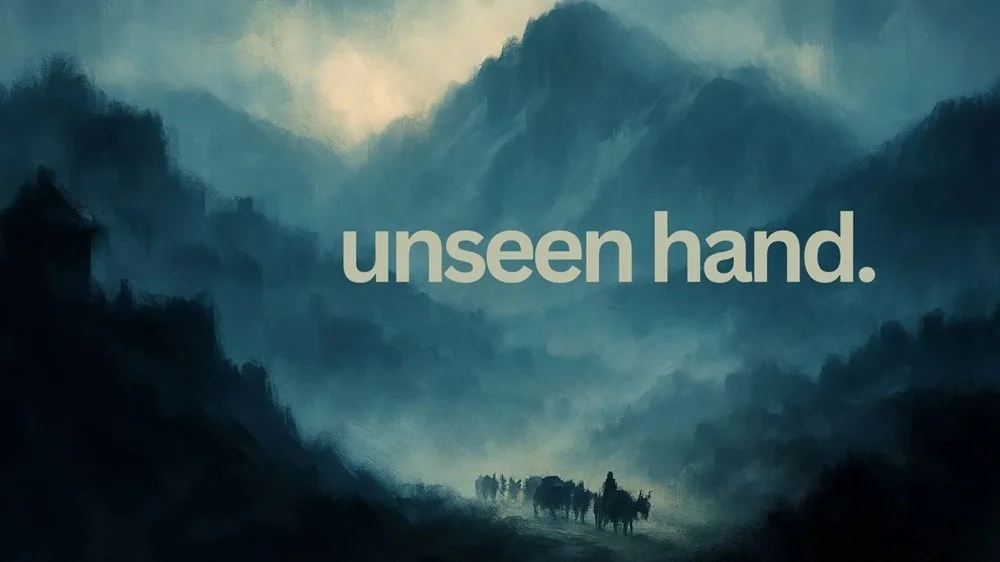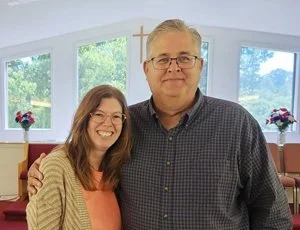The Way Back Begins with a Grave
By Rich Bitterman
Twenty-five years of spiritual drift can make a man forget where he buried his altar.
Jacob had wandered far, not just across deserts and valleys, but into the gray fog of compromise. He was a man marked by promise, and yet his tent reeked of half-hearted worship, buried secrets, and bleeding consequences. He had wrestled with God, seen angels, received covenants, but still let his household bow to idols.
And then, without ceremony, God spoke again.
“Arise, go up to Bethel, and dwell there.” (Genesis 35:1)
That’s the moment everything turned.
Because God, who is slow to leave and swift to return,called him back to the place of first vows.
Digging a Grave for Your Idols
Jacob doesn’t delay. A command to his household:
“Put away your foreign gods. Purify yourselves. Change your clothes.” (Genesis 35:2)
The idols weren’t even hidden anymore. Rachel had smuggled them from her father’s house years ago, and Jacob had looked the other way. Now the whole household had grown comfortable with compromise. Idols in their hands. Earrings with pagan significance dangling from their ears.
He gathers them all. Every last trinket of rebellion. Then he digs a hole beneath a terebinth tree near Shechem. And into that hole they go, gods of silver, symbols of pride, fragments of false hopes.
Then he buries them.
That’s the beginning of revival. A burial.
We are never ready to meet God again until we’ve had a funeral for what we’ve loved more than Him.
So what still sits on your shelf? What receives your gaze more than Scripture? What are you tolerating that would have broken your heart ten years ago?
Bury it. Deep. Irretrievable. Under a tree you’ll never visit again.
The Terror of Obedience
Jacob had every reason to be afraid. His sons had just slaughtered a city. His name was infamous. He was surrounded by enemies who had cause and numbers to wipe him out.
But as he walked toward Bethel, something unexplainable happened.
Terror fell, not on Jacob, but on the cities around him. An unseen dread crept into the hearts of his enemies. They froze. They didn’t pursue.
Obedience brings a strange protection. Not always visible. Not always logical. But real.
You don’t have to fix your past to walk forward. Just walk. Bury your idols, wash your garments, and set your face toward Bethel. God will fight the battles behind you.
The Altar Still Stands
Bethel hadn’t moved. It hadn’t changed. The stones were still there, silent witnesses to the night a younger Jacob had seen the heavens open.
He arrives. He builds again. He calls it El-Bethel…God of the house of God. Not just the place. The Person.
And then God appears.
“I am God Almighty. Be fruitful and multiply.”
The same words He once spoke to Abraham now fall on the ears of a limping man covered in dust, freshly emptied of idols. The covenant is repeated. The name Israel is reaffirmed. The promises are not revoked.
God doesn’t speak to the man Jacob was. He speaks to the man Jacob is becoming.
That’s grace. A resurrection.
And it all started with a hole in the ground.
Rachel’s Grave and Reuben’s Shame
Not far from Bethel, Rachel goes into labor. It is not an ordinary birth. She dies on the road to Bethlehem.
With her final breath, she names the child Benoni, son of my sorrow.
But Jacob, grieving yet grounded, renames him Benjamin…son of my right hand.
This is faith baptized in grief. A father standing beside a grave and refusing to let sorrow write the final sentence of his legacy.
He sets a stone over her resting place. And he walks on.
But the road grows darker still.
“Reuben went and lay with Bilhah, his father’s concubine.” (Genesis 35:22)
This was no private sin. In that culture, it was a declaration of war. The firstborn son was asserting his dominance, attempting to claim what belonged to his father. It was betrayal, not just of family, but of order, an act that would cost Reuben his birthright.
And Jacob, now called Israel, hears of it.
He says nothing.
Sometimes the deepest pain is met with silence, not because it doesn’t wound, but because it goes too deep for words.
The Rainbow Road
Jacob buries his wife. He watches his son defile his name. He walks through valleys littered with reminders of his failures. And yet, there’s something new in his step.
The Bible doesn’t paint over the scars. But now, between the rainstorms, we start to see light.
He counts twelve sons. A nation in his arms.
He walks with God again. Not flawlessly. But forward.
This is the rainbow path the one with sunlight and storm braided together.
You won’t walk with God without burying some things. You won’t walk without weeping. But you will walk with Him. And He will meet you again because His covenant still holds.
The Last Funeral
Jacob reaches Hebron just in time to see his father die.
Isaac, who had once been deceived by this very son, now breathes his last. And in a quiet, undescribed moment of reconciliation, Jacob and Esau bury their father together.
The threat is gone. The years have passed. The wound is closed.
What once burned with vengeance now ends with shared grief.
This is what God does when you walk back toward Him. He meets you in the mess. He speaks again. He appears again. He protects. He purges. He rebuilds.
And He keeps writing your story.
Come Back
You don’t have to stay in Shechem. You don’t have to sit beside your compromise. You don’t have to keep explaining away the idols in your life.
Bethel is still there.
God is still speaking.
The altar can be rebuilt. But only if the gods are buried.
So start digging.
And walk home.
He’ll meet you there.
I’m Pastor Rich Bitterman, a country preacher from the Ozarks. Guy Howard, the old Walking Preacher, once wore out his boots traveling from church to church, meeting strangers and sharing the gospel. I’m doing the same today on digital roads. Each post is a visit. Each verse is a step. Let’s walk the Word together.


